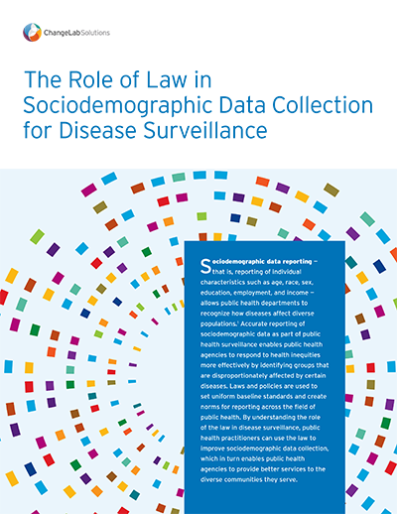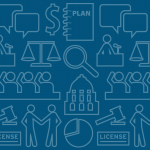The Role of Law in Sociodemographic Data Collection for Disease Surveillance
Accurate reporting of sociodemographic data — which includes characteristics such as age, race, sex, education, employment, and income — as part of public health surveillance can enable public health agencies to respond to health inequities more effectively by identifying groups that are disproportionately affected by certain diseases.
Laws and policies can be used to set uniform baseline standards and create norms for reporting across the field of public health. ChangeLab Solutions partnered with the Centers for Disease Control and Prevention to create a fact sheet that helps public health practitioners better understand the role of the law in disease surveillance, to aid them in using the law to improve sociodemographic data collection, which would enable public health agencies to provide better services to diverse communities.

